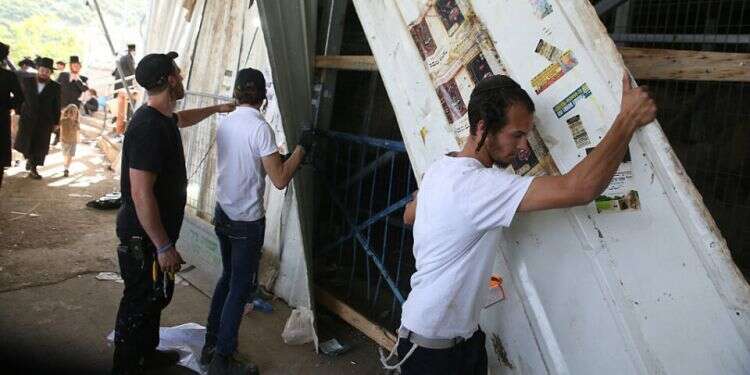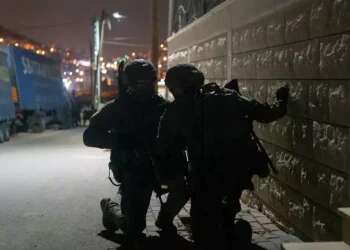The Israel Police on Monday detained for questioning the safety engineer and safety adviser who signed off on the April 30 Lag B'Omer festival at Mount Meron that resulted in a stampede that claimed 45 lives and left 150 injured.
Follow Israel Hayom on Facebook and Twitter
According to sources involved in the matter, the two claimed the disaster did not occur due to a lack of safety precautions or negligence on their part, and shifted the blame onto the police.
The two explained that they had sent a report to the police during preparations for the annual festival listing the defects at the site. In the document, the safety engineer requested that in order to prevent overcrowding, all bonfires be lit simultaneously, so that the thousands of visitors would not have to gather around one fire at a time. His request was not met.
Moreover, after conducting an examination of the premises, the safety engineer sent a letter to the Israel Police Northern District warning that a new structure built at the site narrowed one of the exits and would "pose a danger" in an emergency.
The safety engineer further warned that to prevent overcrowding, all exits from the site must remain open. As evidence suggests, one of the exits was blocked for reasons that have yet to be determined.
"Our clients recommended in writing, to several bodies, the steps designed to reduce the risks," their lawyers said. "At the end of the day, it seems they were disregarded due to pressure. It is very unfortunate that instead of self-reflecting, the police are looking for a scapegoat."
After being questioned, the two engineers were released on house arrest for five days, the police said in a statement.
Meanwhile, the loved ones of those who perished in the stampede, have called on the public to learn from the disaster instead of pointing fingers.
"I am not sure that the disaster on the mountain happened because of the two engineers who have been arrested," said Israel Diskind, who lost his brother Simcha in the disaster. "Even if that is the case, that is only part of the problem.
"The problem is on a national scale. After the disaster, I began to help the bereaved families, and no governmental institution stepped up. I expected to see a social worker or other professionals, but there were none," he said.
"The arrest or even imprisonment of one person will not bring back the dead," said Arele Weingarten, who lost his relative Menachem Zakbach in the disaster. "That is not what any of the families are looking for, in my opinion. We need to understand how to fix Meron and other dangerous sites."
Yitzchak Biner, Zakbach's nephew, said, "We are not interested in revenge, but to make sure this doesn't happen with future events."
Meanwhile, as pressure to establish a state commission of inquiry into the disaster continues to grow, officials decided on Monday to close the Meron site ahead of a major celebration scheduled to take place there Tuesday.
Subscribe to Israel Hayom's daily newsletter and never miss our top stories!




